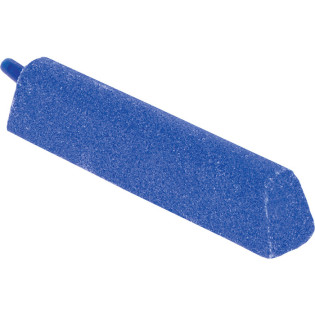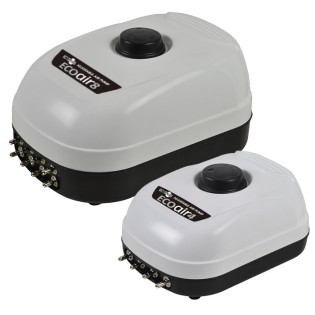
In summary, the differences between air stones and air diffusers are evident. Air stones are cheaper, but add less air, emitting larger bubbles. Air diffusers can be more expensive, however, they add more oxygen through smaller micro air bubbles.
Diffusing oxygen is used for numerous tasks in indoor and hydroponic gardening, including de-chlorinating water and providing ample oxygen in hydroponic systems.
Diffusing oxygen is the process of pumping atmospheric air through a diffusing stone or tube. This process creates tiny bubbles which infuse the water with more oxygen.
For a successful deep water culture system, it is essential to ensure that the plant roots have access to oxygen even though they are in a nutrient-rich solution, as this is usually found in soil with good aeration.
What are the differences between air stones and defusers?

Air stones and air defusers are essential components in any hydroponic system and are used with an air pump.
Without supplemental oxygen in systems like DWC and ebb and flow, roots could suffocate. This bubble aeration restores oxygen so your plants can breath and excel.
The only real difference between hydroponic air stones and diffusers is in their shape and appearance of them. They essentially do the same thing.
Air stones are, as the name suggests, a stone/cylinder that is set in shape and size. Air diffusers on the other hand can be manipulated in terms of shape to work more efficiently and cover a larger surface area.
Because of this, many growers tend to favor hydroponic air diffusers over traditional stones. But before you choose one over the other, let's quickly cover them both in detail.
Air Stones
Air stones have long been the standard for air diffusion in water. In aquariums and fish tanks, air stones provide dissolved oxygen to fish and other mammals.
They are made with a porous rock containing many small holes and come in many shapes and sizes.
One of the negative aspects of air stones is their small size. This results in a concentration of bubbles in one location rather than an even distribution of bubbles.

This can cause irregular and asymmetrical root growth in DWC systems, leading to lower growth rates and plant health issues.
These fine bubble aeration systems are also very prone to clogging and developing a film build-up which can seriously affect the performance.
Take a look at some of the air stones for hydroponics we carry here at Hydrobuilder!
Air Diffusers
Made from flexible tubes, air diffusers feature a more even distribution of holes. They are much larger than most air stones and can be bent into unique shapes.
Because of this, air diffusers do a much better job of evenly distributing the bubbles inside a nutrient solution hydroponic reservoir.
They are also able to create smaller bubbles as the material is more like rubber than stones allowing more control in the manufacturing process.

Air diffusers also put less load on air pumps than air stones helping them last longer.
For use in gardening, air diffusers are a better choice than the less efficient air stones.
Check out our video below to see air diffusers in action!
What Are The Best Air Stones & Diffusers For Hydroponics?
No matter which style you go with, you'll want to find the best air stone or diffuser for hydroponics to ensure your roots don't drown.
We carry a wide range of air stones & diffusers at Hydrobuilder, but you can't go wrong with the following products:
- Current Culture Sintered Air Stone
- EcoPlus Round Air Stone
- Active Aqua Air Stone, Case of 12 (great option for commercial growers)
- EcoPlus HydroVescent Air Disc
Don't Forget An Air Pump
In order for your hydroponic air stone or diffuser to work, you'll also need an air pump.
These are what actually produce the oxygen your stone or diffuser provides in the reservoir or tank. The good news is these aren't much of an additional investment, starting as low as $20!
Make sure you purchase an air pump that matches whatever stone or diffuser you are purchasing - sticking with the same brand is a good idea.
If you're new to hydroponics, we recommend you check out our Hydroponics 101 guide to help you understand this style of growing better, and determine if its right for you.


























